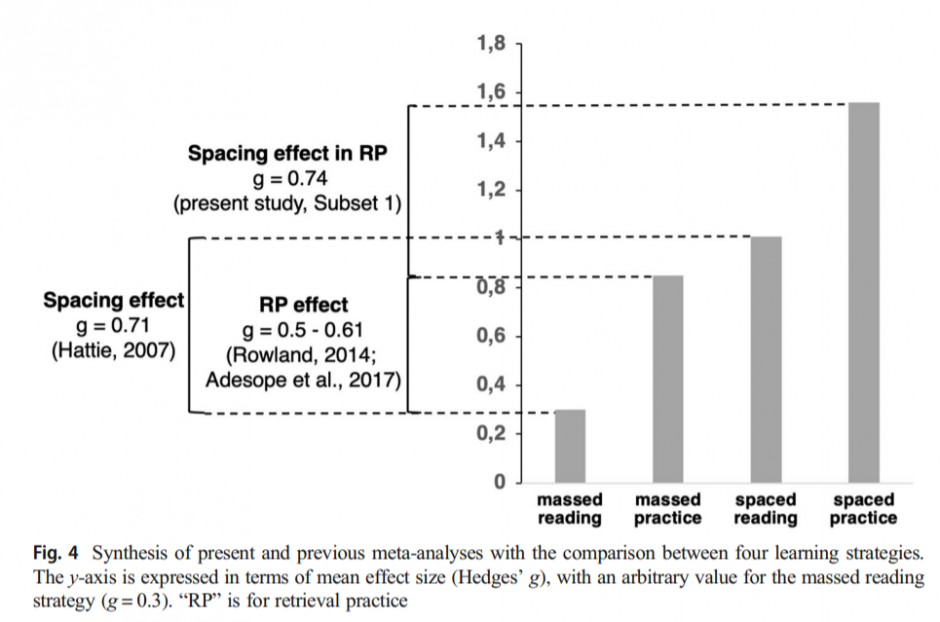3948 results, processed down to 42 studies selected for screening, 29 studies fulfilled the criteria. Two key questions
- Spaced versus Massed Repeated Retrieval Practice
- Expanding versus Uniform Spacing Schedule
Moderators included
- Setting
- Education Level
- Type of Material
- Design
- Test Type Used for the Training Phase
- Final Test Type
- Feedback The presence of feedback (corrective as well as elaborative) after the retrieval events
- Retention Interval
- Total Number of Exposures for a Given Item
- Type of Spacing Schedule (Specific to Subset 1)
- Timing of the First Retrieval Event (Specific to Subset 2)
Spaced versus Massed Repeated Retrieval Practice
11 studies, 39 comparisons indicated a large advantage of spaced retrieval practice over massed retrieval practice (g = 1.01, 95% CI [0.68, 1.34]).
One interesting observation was that the spacing effect (g =0.71) may be larger than the retrieval practice effect (g = 0.5 to 0.61 depending on the metaanalysis) and is consistent with the hypothesis that their effects are simply additive.

Expanding versus Uniform Spacing Schedule
There is an intuitive theory that if the memory strength is relatively high, the interval between the repetitions should be longer than when the memory strength is relatively low, in which case an immediate repetition is better. However, as results from subset 2 indicated no significant difference between expanding and uniform spacing schedules of retrieval practice (g = 0.034).
Moderator analyses on this subset showed that the number of exposures of an item during retrieval practice explains inconsistencies between studies: the more learners are tested, the more beneficial the expanding schedule is compared with the uniform one. Overall, these results support the advantage of spacing out the retrieval practice episodes on the same content, but do not support the widely held belief that inter-retrieval intervals should be progressively increased until a retention test.
Practical Implications
The present meta-analyses confirm the evidence in support of both retrieval practice and spacing and suggests that they are best used combined with each other.
Latimier, A., Peyre, H. & Ramus, F. A Meta-Analytic Review of the Benefit of Spacing out Retrieval Practice Episodes on Retention. Educ Psychol Rev 33, 959–987 (2021). https://doi.org/10.1007/s10648-020-09572-8



Pingback: 15% failure rates | KristianStill
Pingback: 15% failure rates | KristianStill